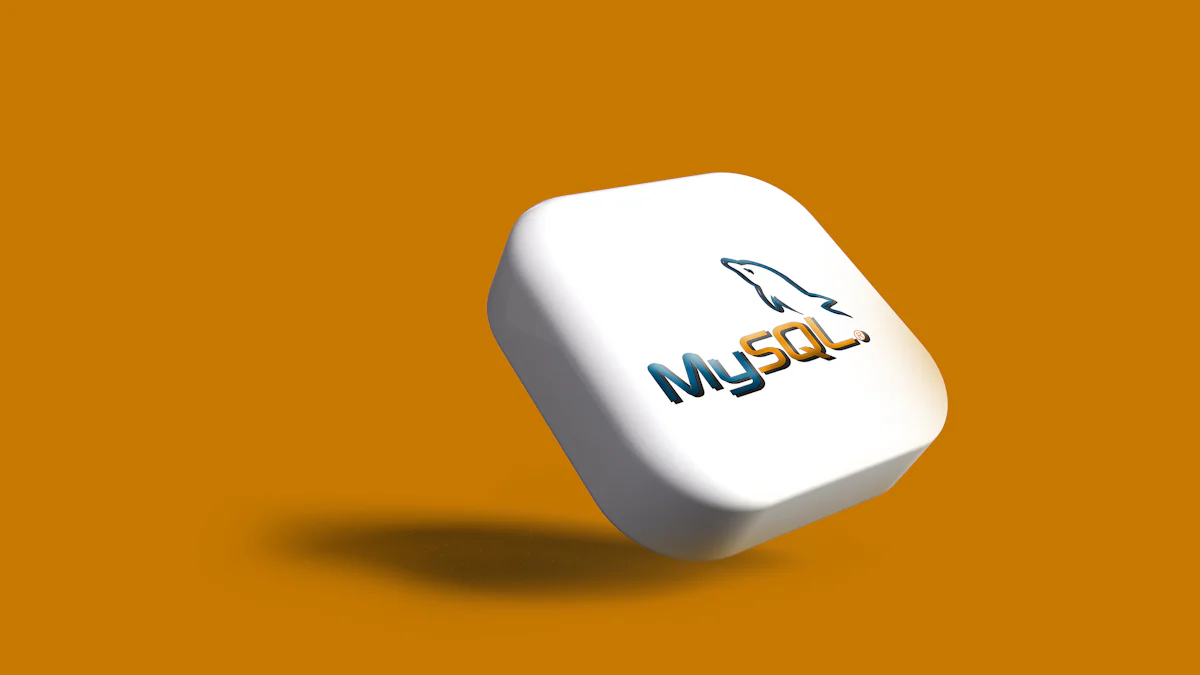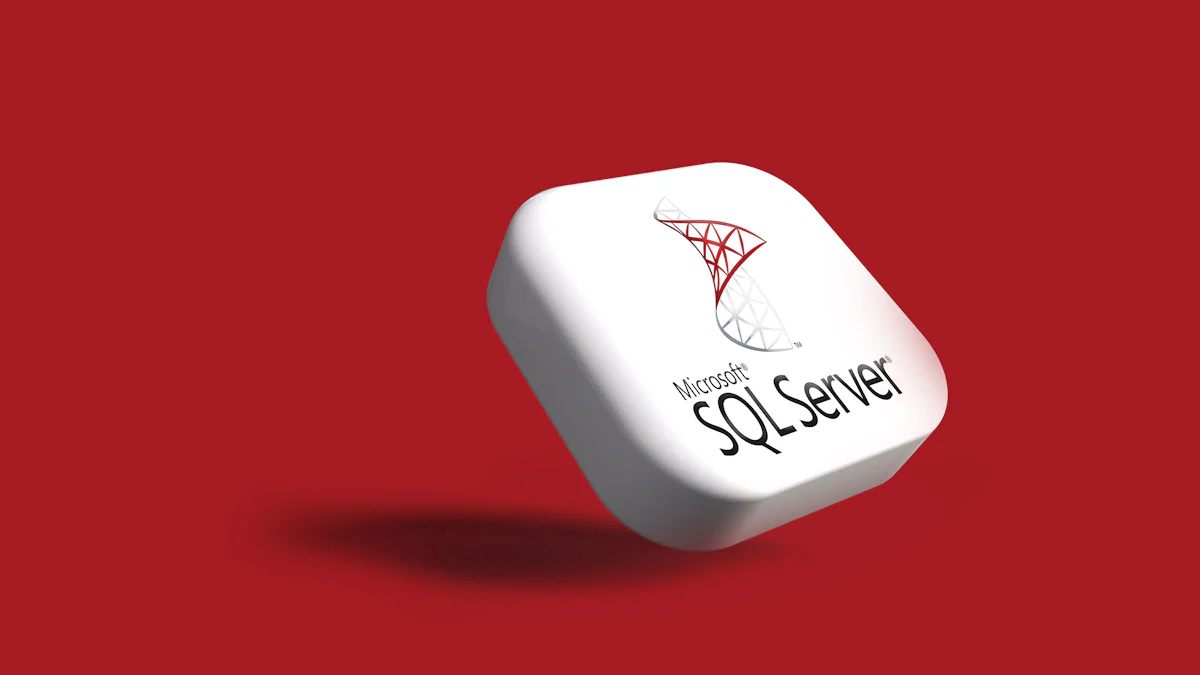Comparing SQL and NoSQL: What You Need to Know

When choosing a database, understanding the differences between SQL vs NoSQL is crucial. SQL databases, used in 90% of data-driven applications, excel in processing transactional data. They offer stability and structure, making them ideal for complex queries. In contrast, NoSQL databases provide flexibility and scalability, handling vast amounts of unstructured or semi-structured data efficiently. With 49% of developers using both systems, knowing when to use each can enhance your data management strategy. This knowledge empowers you to select the right database management systems for your specific needs.
Key Takeaways
SQL databases are ideal for applications requiring complex queries and data integrity, making them suitable for industries like finance and healthcare.
NoSQL databases offer flexibility and scalability, allowing for the storage of unstructured and semi-structured data, which is beneficial for applications with rapidly changing data needs.
Understanding the differences in data structure is crucial: SQL uses a fixed schema while NoSQL employs a dynamic schema, accommodating evolving data models without downtime.
When scalability is a concern, SQL databases typically scale vertically, while NoSQL databases excel in horizontal scaling, distributing data across multiple servers.
Utilizing tools like Chat2DB can enhance your database management experience by simplifying query generation and supporting both SQL and NoSQL systems.
Choosing the right database depends on your specific requirements: opt for SQL for structured data and complex transactions, and NoSQL for high-speed processing of large datasets.
Understanding SQL and NoSQL
What is SQL?
Definition and Overview
SQL, or Structured Query Language, serves as the backbone for relational databases. You use SQL to manage and manipulate structured data stored in tables. Each table consists of rows and columns, allowing you to perform complex queries and maintain data integrity. SQL databases excel in handling transactional data, providing robust support for operations that require consistency and reliability.
Examples of SQL Databases
Several popular SQL databases dominate the industry. MySQL and PostgreSQL are open-source options known for their flexibility and community support. Oracle and Microsoft SQL Server offer enterprise-level solutions with advanced features for large-scale applications. These databases are widely used in various sectors, including finance, healthcare, and e-commerce, due to their ability to handle complex queries and ensure data accuracy.
What is NoSQL?
Definition and Overview
NoSQL databases emerged to address the limitations of traditional SQL databases, particularly in handling unstructured and semi-structured data. Unlike SQL, NoSQL databases do not rely on a fixed schema, offering greater flexibility and scalability. You can store diverse data types, making NoSQL ideal for applications with rapidly changing data structures or large volumes of data. This adaptability allows businesses to evolve their data models without downtime, enhancing development cycles.
Examples of NoSQL Databases
NoSQL databases come in various forms, each suited for specific use cases. MongoDB is a document-based database that excels in storing JSON-like documents. Cassandra offers a wide-column store, perfect for managing large datasets across multiple servers. Redis provides an in-memory key-value store, ensuring high-speed data access. Amazon DynamoDB delivers a fully managed service with seamless scalability. These databases are favored for their ability to handle diverse data types and provide high performance in real-time applications.
Key Differences Between SQL and NoSQL

Storage Models in SQL vs NoSQL
Relational vs. Non-relational
When you explore the world of databases, you'll encounter two primary types: relational databases and non-relational databases. SQL databases fall under the category of relational databases. They store data in structured tables with rows and columns, ensuring that each piece of data has a defined relationship with others. This structure makes SQL databases ideal for applications requiring complex queries and data integrity.
In contrast, NoSQL databases are non-relational. They offer a variety of storage models, such as document-oriented, key-value pairs, and graph structures. This flexibility allows you to store structured, semi-structured, and unstructured data without predefined relationships. NoSQL databases excel in scenarios where data structures evolve rapidly or when handling large volumes of diverse data types.
Data Structure and Flexibility
SQL databases require a fixed schema, meaning you must define the structure of your data before storing it. This rigidity ensures consistency but can limit flexibility. If your application demands frequent changes to the data model, SQL might pose challenges.
NoSQL databases, however, provide dynamic schemas. You can modify the data structure on the fly, accommodating changes without downtime. This adaptability makes NoSQL a preferred choice for applications with evolving data requirements, offering you the freedom to innovate without constraints.
Schemas in SQL vs NoSQL
Fixed Schema in SQL
In SQL databases, the schema defines the structure of your data. You must establish tables, columns, and data types before inserting any data. This fixed schema ensures data consistency and integrity, making SQL databases suitable for applications with well-defined data models.
Dynamic Schema in NoSQL
NoSQL databases embrace a dynamic schema approach. You can store data without a predefined structure, allowing for greater flexibility. This feature proves advantageous when dealing with unstructured or semi-structured data, enabling you to adapt to changing data needs effortlessly.
Scalability in SQL vs NoSQL
Vertical vs. Horizontal Scaling
Scalability is a crucial factor when choosing between SQL and NoSQL databases. SQL databases typically scale vertically. You enhance performance by adding more resources, such as CPU or RAM, to a single server. While effective for moderate workloads, vertical scaling has limitations in handling massive data volumes.
NoSQL databases, on the other hand, excel in horizontal scaling. You can distribute data across multiple servers, allowing for seamless expansion as your data grows. This capability makes NoSQL databases ideal for applications requiring high availability and scalability.
Performance Considerations
Performance varies between SQL and NoSQL databases based on your specific use case. SQL databases shine in executing complex queries and maintaining data integrity. They are well-suited for applications with transactional data and multi-row operations.
NoSQL databases offer superior performance in scenarios involving large datasets and real-time data access. They provide faster read and write operations, making them a popular choice for applications demanding high-speed data processing.
Pros and Cons of SQL and NoSQL
Advantages of SQL
ACID Compliance
You benefit from SQL databases' ACID compliance, which stands for Atomicity, Consistency, Isolation, and Durability. These properties ensure that transactions are processed reliably, maintaining data integrity even in the event of system failures. This makes SQL databases ideal for applications where data accuracy and consistency are critical, such as financial systems and order processing.
Structured Query Language
SQL, or Structured Query Language, provides a standardized way to interact with relational databases. You can perform CRUD operations—Create, Retrieve, Update, and Delete—efficiently. This language simplifies complex queries, allowing you to manage structured data effectively. SQL's widespread adoption means you have access to a wealth of resources and community support.
Disadvantages of SQL
Scalability Limitations
SQL databases typically scale vertically. You enhance performance by adding more resources to a single server. However, this approach has limitations when dealing with massive data volumes. As your data grows, you may encounter challenges in maintaining performance and efficiency.
Schema Rigidity
In SQL databases, you must define a fixed schema before storing data. This rigidity ensures consistency but can limit flexibility. If your application requires frequent changes to the data model, adapting the schema can be cumbersome. This constraint makes SQL less suitable for applications with evolving data structures.
Advantages of NoSQL
Flexibility and Scalability
NoSQL databases offer unparalleled flexibility. You can store structured, semi-structured, and unstructured data without a predefined schema. This adaptability allows you to modify data structures on the fly, accommodating changes without downtime. Additionally, NoSQL databases excel in horizontal scaling. You can distribute data across multiple servers, ensuring seamless expansion as your data grows.
Handling Large Volumes of Data
NoSQL databases are designed to handle large volumes of diverse data types efficiently. They provide faster read and write operations, making them ideal for applications requiring high-speed data processing. This capability is particularly beneficial for real-time applications and those dealing with big data.
Disadvantages of NoSQL
Lack of Standardization
NoSQL databases offer flexibility, but this comes at the cost of standardization. Unlike SQL databases, which use a universally recognized query language, NoSQL databases employ various data models and query languages. This diversity can lead to challenges in maintaining consistency across different systems. You might find it difficult to switch between NoSQL databases or integrate them with other systems due to the lack of a standardized approach. This can complicate data management and increase the learning curve for developers who need to work with multiple NoSQL solutions.
Consistency Challenges
In the realm of data management, consistency is crucial. NoSQL databases often prioritize availability and partition tolerance over consistency, following the CAP theorem. This means that while NoSQL databases can handle large volumes of data and provide high availability, they may not always ensure immediate consistency. You might encounter scenarios where data updates are not instantly reflected across all nodes, leading to potential discrepancies. This eventual consistency model can pose challenges for applications that require real-time data accuracy, such as financial transactions or inventory management. Understanding these trade-offs is essential when deciding whether NoSQL is the right fit for your specific needs.
Practical Use Cases for SQL and NoSQL

When deciding between SQL and NoSQL databases, understanding their practical applications can guide you in making informed choices. Each type of database offers unique advantages that cater to specific scenarios and industries.
When to Use SQL
Scenarios Favoring SQL
You should consider SQL databases when your application requires complex queries and data integrity. SQL excels in environments where structured data and relationships between data points are crucial. If your project involves transactional data, such as financial records or order processing, SQL databases provide the reliability and consistency you need. Their ACID compliance ensures that transactions are processed accurately, maintaining data integrity even during system failures.
Industry Examples
Several industries benefit from the structured nature of SQL databases. In finance, SQL databases manage transactional data with precision, ensuring accurate records of financial activities. Healthcare organizations rely on SQL to maintain patient records, ensuring data consistency and compliance with regulations. E-commerce platforms use SQL databases to handle inventory management and customer transactions, providing a seamless shopping experience. These examples highlight SQL's ability to support industries where data accuracy and complex queries are paramount.
When to Use NoSQL
Scenarios Favoring NoSQL
NoSQL databases shine in scenarios where flexibility and scalability are essential. You should opt for NoSQL when dealing with large volumes of unstructured or semi-structured data. If your application requires rapid development cycles and frequent changes to the data model, NoSQL's dynamic schema offers the adaptability you need. NoSQL databases are ideal for applications that demand high-speed data processing and real-time analytics, such as social media platforms and IoT applications.
Industry Examples
In the tech industry, NoSQL databases power social media platforms by efficiently handling vast amounts of user-generated content. E-commerce giants use NoSQL to manage product catalogs and customer interactions, allowing for personalized shopping experiences. In the gaming industry, NoSQL databases support real-time data processing, enabling seamless multiplayer experiences and dynamic content updates. These examples demonstrate NoSQL's ability to accommodate industries with evolving data requirements and high-performance demands.
Chat2DB: Bridging SQL and NoSQL
How Chat2DB Supports SQL
Chat2DB empowers you to harness the full potential of SQL databases. It simplifies the process of generating SQL queries, even if you lack extensive technical knowledge. By using natural language, you can create complex queries effortlessly. This feature proves invaluable for businesses that rely on SQL databases for transactional data and complex queries.
With Chat2DB, you gain access to a platform that supports a wide range of SQL databases, including MySQL, PostgreSQL, Oracle, and Microsoft SQL Server. These databases are renowned for their stability and ability to handle structured data efficiently. Chat2DB ensures that you can manage these databases seamlessly, enhancing your productivity and data management capabilities.
Moreover, Chat2DB emphasizes data security and integrity. It processes queries locally and uses advanced encryption methods to protect your data. This commitment to security aligns with the needs of industries like finance and healthcare, where data accuracy and confidentiality are paramount.
How Chat2DB Supports NoSQL
Chat2DB also excels in supporting NoSQL databases, offering you the flexibility and scalability needed for modern applications. NoSQL databases, such as MongoDB, Cassandra, Redis, and Amazon DynamoDB, are designed to handle large volumes of unstructured or semi-structured data. They provide the adaptability required for applications with rapidly changing data structures.
With Chat2DB, you can connect to these NoSQL databases effortlessly. The platform allows you to manage diverse data types and perform real-time analytics, making it ideal for industries like e-commerce and social media. These sectors often require high-speed data processing and the ability to handle massive datasets efficiently.
Chat2DB's support for NoSQL databases enables you to leverage the strengths of these systems. You can scale horizontally, distributing data across multiple servers to accommodate growth. This capability ensures that your applications remain responsive and reliable, even as data volumes increase.
In your journey to understand the differences between SQL and NoSQL, you have explored their unique strengths and applications. SQL databases offer structured data management, ensuring consistency and integrity, making them ideal for transactional applications. NoSQL databases provide flexibility and scalability, accommodating diverse data types and evolving needs. When choosing between SQL and NoSQL, consider your specific requirements. For complex queries and data integrity, SQL is your go-to. For handling large volumes of unstructured data, NoSQL excels. Tools like Chat2DB enhance your database management by optimizing queries and indexes, ensuring peak performance in both environments.
FAQ
What are the main differences between SQL and NoSQL databases?
SQL databases are relational, using structured query language to manage data in tables with predefined schemas. They excel in handling structured data and complex queries. NoSQL databases, on the other hand, are non-relational and offer dynamic schemas, making them ideal for unstructured or semi-structured data. They provide flexibility and scalability, allowing you to handle large volumes of diverse data types.
When should I choose SQL over NoSQL?
Choose SQL when your application requires complex queries and data integrity. SQL databases are ideal for structured data with defined relationships, such as financial records or order processing. Their ACID compliance ensures reliable transactions, making them suitable for industries like finance and healthcare.
When is NoSQL a better option?
NoSQL is better for applications needing flexibility and scalability. If you deal with large volumes of unstructured data or require rapid development cycles, NoSQL's dynamic schema is advantageous. It's perfect for real-time analytics and applications like social media platforms and IoT systems.
How do SQL and NoSQL handle scalability?
SQL databases typically scale vertically by adding resources to a single server. This method works for moderate workloads but has limitations with massive data volumes. NoSQL databases excel in horizontal scaling, distributing data across multiple servers, which allows seamless expansion as your data grows.
What are the performance considerations for SQL and NoSQL?
SQL databases perform well with complex queries and maintaining data integrity. They suit applications with transactional data. NoSQL databases offer faster read and write operations, making them ideal for large datasets and real-time data access, providing high-speed data processing.
Can I use both SQL and NoSQL in a single project?
Yes, many projects benefit from using both SQL and NoSQL databases. You can leverage SQL for structured data and complex queries while using NoSQL for unstructured data and scalability. This hybrid approach allows you to optimize your data management strategy based on specific needs.
How does Chat2DB support both SQL and NoSQL databases?
Chat2DB simplifies data management by supporting a wide range of SQL and NoSQL databases. It allows you to generate SQL queries using natural language and manage diverse data types in NoSQL databases. Chat2DB enhances productivity and ensures data security, making it a versatile tool for various applications.
What are the security considerations for SQL and NoSQL databases?
SQL databases offer robust security features, ensuring data integrity and consistency. NoSQL databases prioritize availability and scalability, which may lead to eventual consistency. It's crucial to assess your application's security needs and choose a database that aligns with your requirements.
How do I decide between SQL and NoSQL for my project?
Consider your application's data structure, scalability, and performance needs. SQL is ideal for structured data and complex queries, while NoSQL offers flexibility and scalability for unstructured data. Evaluate your specific requirements and choose the database that best fits your project's goals.
See Also
Essential Insights About SQL Native Client You Should Have
Key Database Clients to Explore in 2024
Effective Strategies for Optimizing Your SQL Queries
Three Compelling Reasons to Prefer Chat2DB Instead of DBeaver

